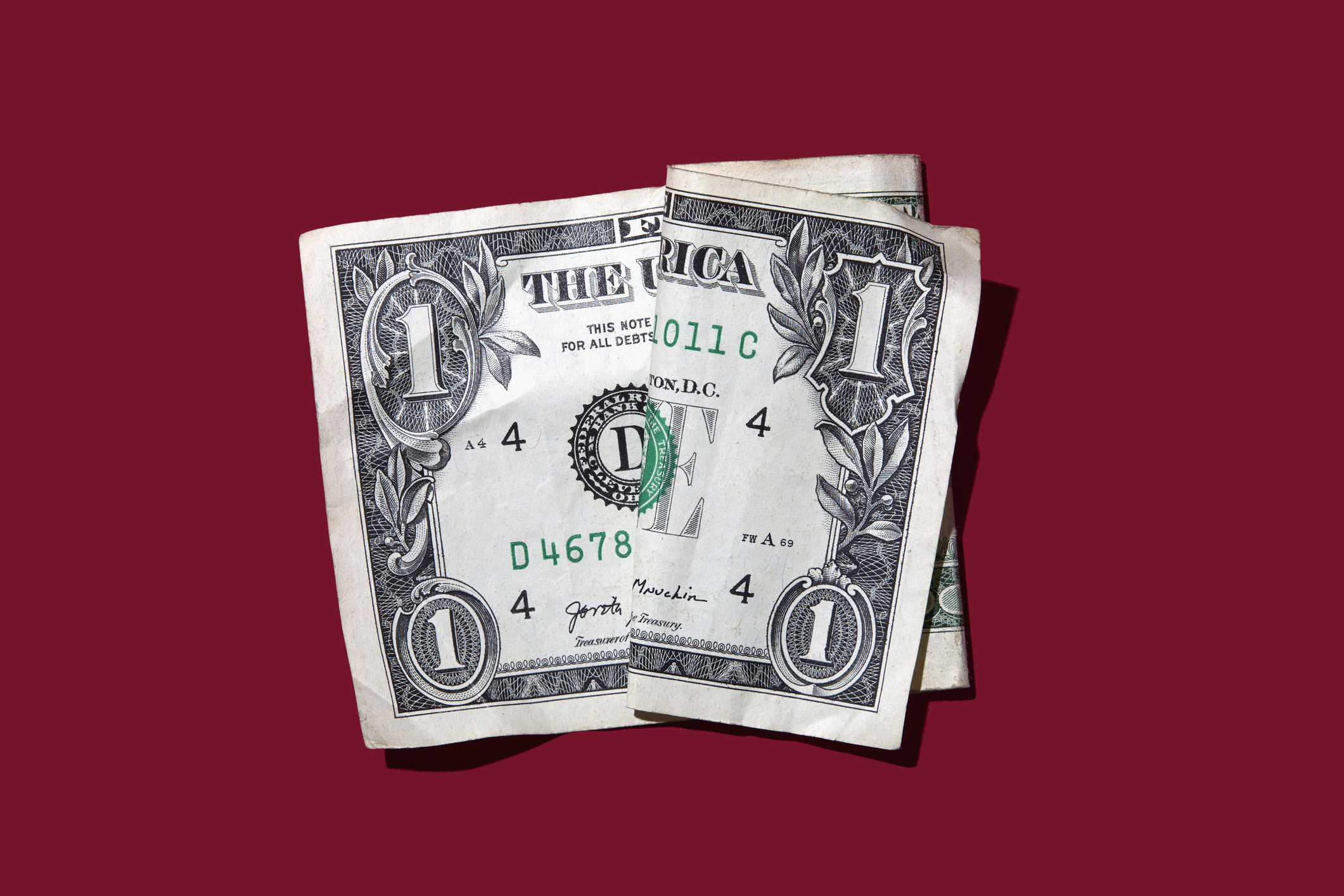Pennsylvania Tax Guide
Explore Pennsylvania's state tax rates for income, sales, property, retirement, and more. Learn how Pennsylvania compares nationwide.


Profit and prosper with the best of Kiplinger's advice on investing, taxes, retirement, personal finance and much more. Delivered daily. Enter your email in the box and click Sign Me Up.
You are now subscribed
Your newsletter sign-up was successful
Want to add more newsletters?
Navigating the complexities of state taxes can be daunting, but understanding Pennsylvania's tax landscape is essential for residents and newcomers alike.
In this guide, we'll explore key components of The Keystone State's tax system, from income and sales taxes to property taxes and retirement benefits.
Pennsylvania tax: Overview
Pennsylvania’s tax landscape has a little bit of everything.
From just $107.88 $24.99 for Kiplinger Personal Finance
Become a smarter, better informed investor. Subscribe from just $107.88 $24.99, plus get up to 4 Special Issues

Sign up for Kiplinger’s Free Newsletters
Profit and prosper with the best of expert advice on investing, taxes, retirement, personal finance and more - straight to your e-mail.
Profit and prosper with the best of expert advice - straight to your e-mail.
Some taxes, like those on gas and property, are higher than what you'd find in many other states. The state’s flat income tax is relatively low, though local governments can add their own income taxes on top.
Sales tax falls somewhere in the middle, and many common items are exempt, which helps soften the impact.
And for those who enjoy a cold beer, there’s a small win; Pennsylvania has one of the lowest beer taxes in the country.
Here's more to know.
[Data for this state tax guide was gathered from several sources including the U.S. Census Bureau, the state’s government website, the Sales Tax Handbook, and the Tax Foundation. Property taxes are cited as a rate percentage rather than the assessed value.]
Pennsylvania income tax

Pennsylvania has a flat rate of 3.07%.
Municipalities and school districts can also impose taxes on wages or income.
Pennsylvania retirement taxes
Pennsylvania tax on retirement benefits: Social Security and Railroad Retirement benefits are not taxed by the state. Income from private employer, government, and military retirement plans paid after the taxpayer becomes eligible to retire is tax-exempt.
Pennsylvania doesn’t tax any traditional types of retirement income.
Even other types of income are taxed at a low flat rate, but localities in Pennsylvania can impose local income taxes of their own.
- Tax on Taxable Income: Flat rate of 3.07%
- Social Security: Not taxable
- Pensions: Not taxable
- 401(k) and IRA Distributions: Not taxable
Pennsylvania sales tax

Pennsylvania's statewide sales tax rate is 6%, and localities can add up to 2%, according to the Sales Tax Handbook.
- Groceries: Exempt
- Prescription drugs: Exempt
- Diapers and some feminine hygiene products: Exempt
How much are property taxes in Pennsylvania?

In Pennsylvania, the average effective property tax rate is 1.19%, which is higher than in most other states.
Pennsylvania Property Tax Breaks for Retirees
Pennsylvania Property Tax and Rent Rebates: Some homeowners and renters 65 or older may be eligible for property tax or rent rebates through the Property Tax/Rent Rebate Program.
To qualify, residents must meet income guidelines and apply for the rebate.
(Note: Widows and widowers 50 and older and people with disabilities age 18 and older may also qualify for a rebate.)
Pennsylvania gas tax

Gasoline: $0.50 per gallon
Diesel: $0.64 per gallon
Pennsylvania Alcohol and Tobacco Taxes
Product | Tax amount |
|---|---|
Cigarettes | $2.60 per pack |
Medical marijuana | 5% state cannabis excise tax |
Source: Sales Tax Handbook
Product | Tax amount |
|---|---|
Wine | $0 per gallon |
Beer | $0.08 per gallon |
Liquor | state-controlled |
Source: Sales Tax Handbook
(Note: Sales tax and local taxes may apply to alcohol and tobacco purchases.)
Pennsylvania estate and inheritance taxes
Pennsylvania's inheritance tax ranges from 0% to 15%.
Spouses and parents inheriting property from a child 21 are younger are exempt from paying the tax.
Other direct descendants may need to pay a 4.5% tax rate, and siblings are subject to a 12% rate.
Unrelated heirs pay a 15% inheritance tax in Pennsylvania (with some exceptions).
Related
Profit and prosper with the best of Kiplinger's advice on investing, taxes, retirement, personal finance and much more. Delivered daily. Enter your email in the box and click Sign Me Up.

Katelyn has more than 6 years of experience working in tax and finance. While she specialized in tax content while working at Kiplinger from 2023 to 2024, Katelyn has also written for digital publications on topics including insurance, retirement, and financial planning and had financial advice commissioned by national print publications. She believes knowledge is the key to success and enjoys providing content that educates and informs.
-
 4 High-End Experiences Worth the Splurge After 50
4 High-End Experiences Worth the Splurge After 50These curated date ideas provide the perfect backdrop for couples ready to enjoy the very best that the world has to offer.
-
 Health Care Stocks Have Sagged. Can You Bet on a Recovery?
Health Care Stocks Have Sagged. Can You Bet on a Recovery?The flagging health care sector has perked up a bit lately. Is it time to invest?
-
 Costco's Auto Program: Can Membership Pricing Really Save You Money on a Car?
Costco's Auto Program: Can Membership Pricing Really Save You Money on a Car?Costco's Auto Program can simplify the car-buying process with prearranged pricing and member perks. Here's what to know before you use it.
-
 2026 Tax Refund Delays: 5 States Where Your Money Is Stuck
2026 Tax Refund Delays: 5 States Where Your Money Is StuckState Tax From New York to Oregon, your state income tax refund could be delayed for weeks. Here's what to know.
-
 How One Extra Dollar of Income Can Cost You Thousands in Retirement
How One Extra Dollar of Income Can Cost You Thousands in RetirementRetirement Even modest changes in retirement income can raise Medicare premiums under IRMAA. Here’s how a small increase can affect your retirement costs.
-
 First the Penny, Now the Nickel? The New Math Behind Your Sales Tax and Total
First the Penny, Now the Nickel? The New Math Behind Your Sales Tax and TotalRounding Tax A new era of "Swedish rounding" hits U.S. registers soon. Learn why the nickel might be on the chopping block, and how to save money by choosing the right way to pay.
-
 Over 65? Here's What the New $6K Senior Tax Deduction Means for Medicare IRMAA
Over 65? Here's What the New $6K Senior Tax Deduction Means for Medicare IRMAATax Breaks A new tax deduction for people over age 65 has some thinking about Medicare premiums and MAGI strategy.
-
 U.S. Congress to End Emergency Tax Bill Over $6,000 Senior Deduction and Tip, Overtime Tax Breaks in D.C.
U.S. Congress to End Emergency Tax Bill Over $6,000 Senior Deduction and Tip, Overtime Tax Breaks in D.C.Tax Law Here's how taxpayers can amend their already-filed income tax returns amid a potentially looming legal battle on Capitol Hill.
-
 How to Open Your Kid's $1,000 Trump Account
How to Open Your Kid's $1,000 Trump AccountTax Breaks Filing income taxes in 2026? You won't want to miss Form 4547 to claim a $1,000 Trump Account for your child.
-
 In Arkansas and Illinois, Groceries Just Got Cheaper, But Not By Much
In Arkansas and Illinois, Groceries Just Got Cheaper, But Not By MuchFood Prices Arkansas and Illinois are the most recent states to repeal sales tax on groceries. Will it really help shoppers with their food bills?
-
 7 Bad Tax Habits to Kick Right Now
7 Bad Tax Habits to Kick Right NowTax Tips Ditch these seven common habits to sidestep IRS red flags for a smoother, faster 2026 income tax filing.